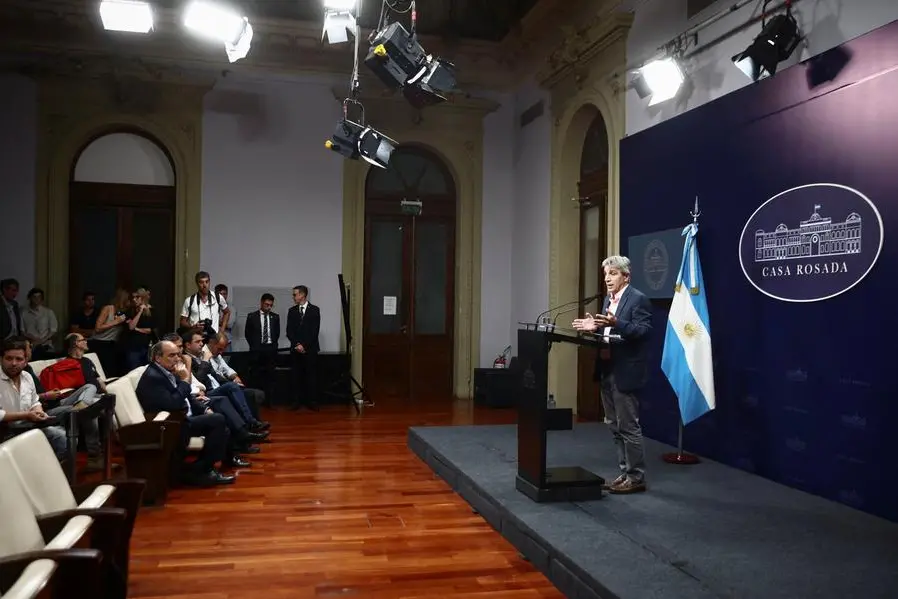PHOTO
The International Monetary Fund will allow Argentina to defer the last review of its $44 billion loan by two months, giving the government more time to apply reforms and potentially negotiate a new program, according to people with direct knowledge.
Government and fund officials have agreed that the last review of the current package, initially set for September, will be postponed to November, said three sources who asked not to be named because the information is not public.
The IMF and countries are subject to a schedule of reviews on progress that, once signed off by the fund's executive board, trigger disbursement of tranches of financing.
In Argentina's case, this is the first time the date of the last review on a loan agreed to in 2022 changes.
The government and IMF staff recently agreed on the seventh review of the program, which was delayed amid a change of government as President Javier Milei took office on Dec. 10.
The fund's executive board is expected to sign off on the extension as well as $4.7 billion in funding at a meeting on Wednesday.
An IMF spokesperson didn't reply to a request of comment. A spokesperson for Argentina's economy ministry confirmed that the government expected the fund's board to meet on Jan. 31 to discuss the program but declined to comment further.
The additional time is to "ensure that the program delivers on its objectives," one of the sources said. The quantity of total reviews has not changed, the source said, adding that the extension does not imply any fresh financing.
The remaining three reviews from May onward are set to trigger around $1.9 billion in disbursements.
"The country could always negotiate a new program before the current loan ends, but now it has more breathing room until the end of the year to decide what it wants to do," another source said.
GOALS MISSED
The latest staff report is set to express again that the program with South America's second-largest economy went "significantly off track," two sources said, after goals such as international reserves accumulation and reduction of the primary fiscal deficit were missed.
Milei's administration aims to reach fiscal balance and build up $10 billion in net international reserves by end-2024.
The IMF expects the country to complete public hearings for energy prices, buy back government debt held by the central bank and solve external commercial debt, one of the sources said.
Argentina Economy Minister Luis Caputo on Friday said the government withdrew major spending reforms from a sweeping "omnibus" bill in Congress to facilitate its approval because the government did not have enough support to push through measures such as tax reforms.
"While so far no announcements have been made, discretionary transfers to provinces should lay at the forefront of the savings roadmap," according to a JPMorgan report by economist Diego Pereira.
"While waiting for the measures to be deployed, we maintain in our central scenario a primary (not headline) fiscal balance for this year."
Milei, a political outsider who rode to power on the back of voter anger at the worsening economic situation, is looking to employ tough austerity measures to bring down inflation, reduce a deep fiscal deficit and rebuild government coffers. The country's annual inflation rate sped past 211% in December.
The grains exporter, the largest debtor to the fund, struggled in 2023 to pay back the IMF, resorting to deals with China and with Qatar to make ends meet.
The 2022 program that ends by year-end was a loan that mainly refinanced a previous 2018 failed program with the fund.
(Reporting by Jorgelina do Rosario; Additional reporting by Walter Bianchi; Editing by Karin Strohecker and Andrew Cawthorne)





















